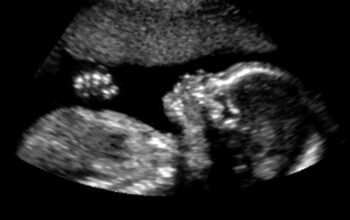Embarking on a journey towards a PhD in Physics is akin to traversing a labyrinthine pathway laden with challenges and revelations. This advanced degree not only imparts specialized knowledge but also fosters a profound shift in cognitive paradigms. Unlike undergraduate studies, where the focus might center on foundational principles and established theories, a doctoral program invites candidates to question the very bedrock of physics itself. This exploration paves the way for intellectual growth, propelling scholars into the realms of inquiry that are often uncharted.
At the outset, candidates will immerse themselves in rigorous coursework designed to refine their analytical skills and deepen their comprehension of complex concepts. These courses typically traverse diverse areas such as quantum mechanics, thermodynamics, and electromagnetism, each demanding a level of mastery that necessitates both theoretical understanding and practical application. The curriculum may also include cutting-edge topics, encompassing fields like condensed matter physics, astrophysics, and particle physics, which not only broaden the academic scope but also enhance the research toolkit available to students.
However, the PhD experience transcends mere academic learning; it is a crucible of thought and innovation. Candidates are encouraged to engage in collaborative research endeavors, working alongside faculty members who are often leading figures in their respective fields. Through such mentorship, students cultivate a nuanced understanding of the research process—from literature review and hypothesis formation to experimental design and data analysis. This symbiotic relationship fosters not only academic rigor but also emotional resilience; students learn to navigate the highs and lows of scientific inquiry, gaining insights that extend far beyond the confines of textbooks.
In parallel with theoretical studies, the practical components of a PhD in Physics are indispensable. Laboratory work becomes a focal point, where abstract concepts are rendered tangible, and hypotheses are tested in real-world scenarios. Students engage with sophisticated equipment and cutting-edge technologies, ranging from particle accelerators to superconducting materials. This hands-on experience is instrumental not only in honing technical abilities but also in nurturing critical thinking and problem-solving skills. Each experiment serves as a reminder that physics is not merely an intellectual pursuit but an empirical science grounded in observation and experimentation.
As students progress through their doctoral studies, they will inevitably encounter the rigors of independent research. The process of formulating a unique research question, one that contributes to the existing body of knowledge, poses a formidable challenge. This stage is pivotal; it is where curiosity is ignited, and original ideas are born. Candidates will delve into extensive literature reviews, identifying gaps in research and establishing the significance of their inquiry. The evolution of a research project often demands adaptability and perseverance, as initial findings may lead in unforeseen directions, necessitating recalibration and refinement of theories.
The dissertation—arguably the culminating achievement of a PhD program—embodies the distillation of years of scholarly effort and intellectual evolution. This extensive document is not solely a summary of research findings; it is a comprehensive narrative that articulates the significance of the research within the larger context of physics. Crafting a dissertation demands meticulous attention to detail, eloquent writing, and a robust understanding of the relevant scientific literature. The process encourages scholars to engage critically with their work, fostering a sense of ownership and culmination of their academic journey.
Moreover, the philosophical implications of doctoral work in physics merit consideration. As scholars wrestle with fundamental questions about the nature of reality—whether concerning the behavior of subatomic particles or the dynamics of galaxies—they often find themselves engaging in a metamorphosis of perspective. This shift is not merely intellectual; it can be profoundly existential, prompting profound questions about humanity’s place in the cosmos, the interplay of science and spirituality, and the ethical implications of scientific advancement.
The academic landscape of a PhD in Physics is not confined to the pursuit of knowledge alone; it is also an arena for cultivating professional acumen. Conferences, seminars, and workshops provide platforms for scholars to present their research, engage with peers, and foster collaborations. These interactions enrich the academic experience, fostering constructive discourse and facilitating the dissemination of innovative ideas. In an increasingly interconnected scientific community, the ability to articulate complex concepts clearly and effectively to a diverse audience is invaluable.
Furthermore, the journey through a PhD program often equips scholars with transferable skills that are applicable beyond academia. The analytical prowess developed during research, the organizational skills honed through project management, and the communication abilities fostered through presentations and teaching are assets that appeal to a myriad of career paths. Graduates frequently find themselves in prestigious positions within academia, industry, or governmental institutions, contributing to technological advancements, policy-making, and education.
In conclusion, pursuing a PhD in Physics is a multifaceted experience that transcends the mere acquisition of knowledge. It engenders a paradigm shift in how individuals perceive and interact with the physical world, challenging them to redefine their understanding of reality. Through rigorous coursework, practical research, and collaborative engagement, scholars not only gain expertise in their chosen field but also contribute to the ever-evolving narrative of human understanding. This journey, rife with both challenges and triumphs, ultimately fosters a deeper appreciation for the nuances of the universe—an invitation to ponder the mysteries that lie beyond our current comprehension. Indeed, the pursuit of a PhD in Physics is not merely an academic endeavor; it is an odyssey into the heart of inquiry itself.











